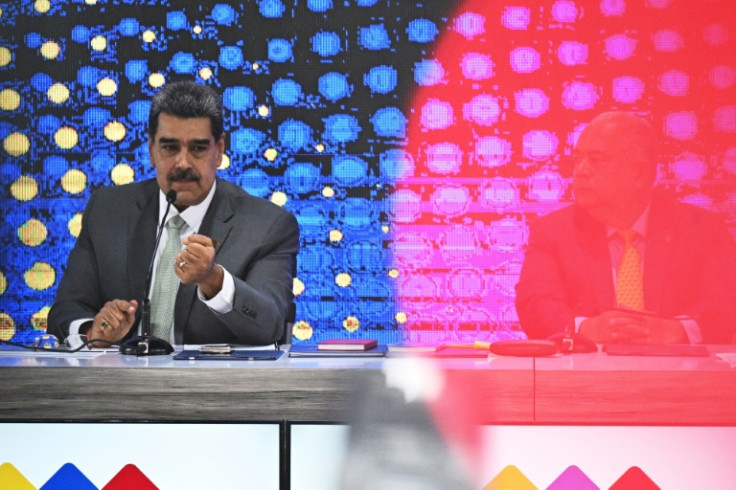
Venezuela has invited the European Union and a panel of experts from the United Nations to observe presidential elections on July 28 in which President Nicolas Maduro is expected to seek another term.
Many countries refused to recognize the results of Maduro's last election in 2018, citing fraud and a lack of transparency, and instead recognized his poll rival Juan Guaido as interim president.
Four years later Maduro, 61, is still firmly in charge of the oil-rich nation after his rival government collapsed and the war in Ukraine choked energy supplies and shifted global priorities.
Venezuela this week set a long-awaited election date which comes after Maduro's government and the opposition sealed a deal in Barbados last year to hold a free and fair vote with international observers present.
The president of the National Electoral Council (CNE), Elvis Amoroso, said Thursday the body had sent invitations to the European bloc and United Nations, the US-based Carter Center NGO, BRICS and the African Union, among others.
"We have extended an invitation for them to participate as electoral observers, as long as they comply with the requirements and established constitutional and legal regulations," he told journalists.
The EU sent a mission to observe 2021 gubernatorial and mayoral elections -- its first in 15 years -- which ended abruptly after Maduro branded the delegation as "enemies" and "spies" after they said the process was marred by irregularities.
The EU observer mission said that despite what it called better conditions than in previous elections, it noted a "lack of adherence to the rule of law" and highlighted the use of public resources in the campaign and the "arbitrary" disqualification of candidates.
The Barbados deal, mediated by Norway, saw the United States ease sanctions against the oil-rich South American country, allowing US-based Chevron to resume limited crude extraction and leading to a prisoner swap.
The agreement required that opposition candidates be allowed to appeal court rulings disqualifying them from holding office.
Since then, however, the Supreme Court loyal to Maduro upheld a 15-year ban on opposition primary winner Maria Corina Machado -- who has nevertheless kept campaigning.
Judges ruled in January that Machado had been "involved... in the corruption plot orchestrated" by former opposition Guaido, now in exile.
The "plot," they said, was responsible for "criminal" sanctions against Venezuela.
The judges also confirmed the ineligibility of a possible opposition stand-in -- two-time presidential candidate Henrique Capriles.
After the ruling, the United States announced it would reimpose some sanctions.
Since then, senior government official Diosdado Cabello has said elections would be held "without the presence" of the United States or the Organization of American States.
In January, Maduro said the Barbados agreement was "mortally wounded" after government authorities claimed to have foiled numerous US-backed plots to assassinate him.
The former bus driver and union leader was the hand-picked successor of Hugo Chavez, taking over from the charismatic revolutionary after he died from cancer in 2013.
Maduro has battled a worsening economy, marked by runaway inflation and shortages as the country's oil boom went bust, and multiple political crises.
The dire situation in the country has pushed more than seven million Venezuelans to flee their country, most to neighboring countries but with a growing number making the dangerous trek to the United States.
Maduro has not said he will seek a third six-year term, but is widely expected to do so.
Ruling party official Cabello, said Wednesday he "had no doubt" Maduro would be the chosen candidate.
Cabello said the "rank and file" of the ruling PSUV party will choose a candidate in countrywide meetings in "an act of democracy" this week.
The candidate will be announced on March 15.







